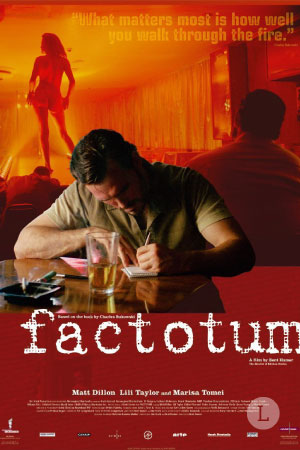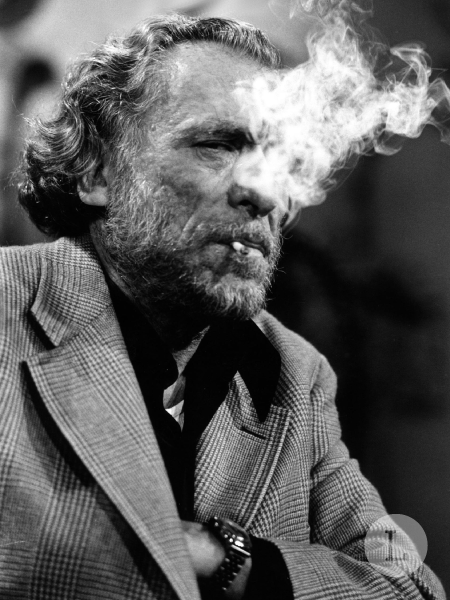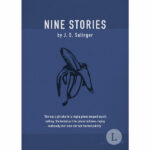Factotum is a novel by Charles Bukowski, first published in 1975. The book is a semi-autobiographical work and tells the story of Henry Chinaski, Bukowski’s alter-ego, as he moves from one dead-end job to the next in search of meaning and purpose.
BOOK INFO
version: CLASSIC, EBOOK, AUDIOBOOK
number of pages: 208
literary movement: DIRTY REALISM
time period: post WW II
literary genre: SEMI-AUTOBIOGRAPHY
1st edition: 1975
years of writing: late 1960s
SUMMARY
The novel is a bleak and unflinching portrait of the drudgery and soul-crushing routine of low-paying, menial jobs. Bukowski’s prose is sparse and direct, capturing the gritty reality of working-class life. The book is unapologetically raw and vulgar, with Chinaski’s alcoholism, womanizing, and general misanthropy on full display.
Despite the harshness of the subject matter, the book is not without its moments of dark humor and absurdity. Chinaski’s adventures in the various jobs he takes on are often darkly comic, and Bukowski’s skill at crafting memorable characters shines through in the various oddball personalities Chinaski encounters along the way.
At its core, Factotum is a story of disillusionment and alienation, a scathing critique of the American Dream and the endless pursuit of success and happiness. Chinaski’s journey is a reminder that, for some, life is a never-ending cycle of dead-end jobs and meaningless existence.
MAIN CHARACTERS
Henry Hank Chinaski
The protagonist and antihero of the novel. He is a struggling writer who works a series of menial jobs to make ends meet. He is often crude, vulgar, and disaffected, but he also possesses a dry wit and a cynical outlook on life.
Jan
A fellow barfly who becomes one of Chinaski’s lovers. She is described as being attractive and sensual, but also troubled and dependent.
Laura
Another of Chinaski’s lovers, she is a somewhat naive and idealistic young woman who aspires to become an artist.
Eddie
Chinaski’s friend and drinking companion. He is a Vietnam War veteran who suffers from PTSD and struggles to readjust to civilian life.
Manny
Chinaski’s coworker at the pickle factory. He is portrayed as being slow-witted and humorless.
Nico
A painter who is friends with Laura. Chinaski is dismissive of him and his work.
Joyce
A woman Chinaski meets in a bar. They have a brief affair, but Chinaski quickly loses interest in her.
Getrude
A wealthy woman who hires Chinaski as a house-sitter. She is eccentric and unconventional, and she and Chinaski share a mutual dislike of each other.
Harry
Chinaski’s former boss at the pickle factory. He is a strict taskmaster who constantly criticizes Chinaski’s work.
Betty
A bartender who works at one of Chinaski’s favorite bars. She is friendly and flirtatious, but Chinaski is not interested in her romantically.
People don’t need love. What they need is success in one form or another. It can be love but it needn’t be.
CHARLES BUKOWSKI
TOP 10 POINTS
- The novel follows the life of Henry Chinaski, Bukowski’s semi-autobiographical alter-ego, as he moves from job to job, woman to woman, and city to city, struggling to find his place in the world.
- The book is a raw and unflinching portrayal of the seedy underbelly of American life, with Chinaski working a series of dead-end jobs, drinking heavily, and sleeping around.
- Chinaski is a complex and often unlikable character, but his honesty and brutal self-awareness make him compelling to read about.
- Bukowski’s spare, minimalist prose style, which he developed over years of writing poetry, is on full display here, with each sentence carefully crafted for maximum impact.
- The book is often darkly humorous, with Bukowski finding absurdity and pathos in the most mundane and depressing situations.
- Although Factotum is not as well-known as some of Bukowski’s other works, it is considered by many to be one of his best, and an important example of his distinctive literary style.
- The book is not for everyone, with its frank depictions of sex, drinking, and other vices, but for those who appreciate Bukowski’s unique voice, it is a must-read.
- Despite its grim subject matter, Factotum is ultimately a hopeful book, with Chinaski never giving up his search for meaning and purpose, no matter how difficult it becomes.
- The book has been adapted into a film, which was released in 2005 and stars Matt Dillon as Chinaski.
- Overall, Factotum is a powerful and thought-provoking work of literature that delves deep into the human condition and the struggle to find one’s place in the world.
At its core, Factotum is a novel about the struggle to survive in a world that is indifferent and uncaring. Through Henry Chinaski, Bukowski paints a portrait of a man who is battered and bruised by life, but who refuses to give up in the face of adversity. The novel is a raw and unfiltered look at the human condition, and it is a powerful testament to the enduring spirit of those who refuse to be beaten down by the world around them.
MOVIE ADAPTATION
Factotum is a 2005 film directed by Bent Hamer, based on the novel of the same name by Charles Bukowski. The movie stars Matt Dillon as Henry Chinaski, a struggling writer who moves from one menial job to another while pursuing his dream of becoming a writer.
The film is set in the 1970s in various cities across the United States, and it follows Henry’s adventures as he works as a factory worker, a janitor, and a bartender. Along the way, he meets and falls in love with a fellow barfly named Jan (played by Lili Taylor), and the two embark on a tumultuous and self-destructive relationship.
Throughout the film, we see Henry’s struggles as a writer, as well as his battles with alcoholism and his tendency to sabotage his own success. The movie also explores themes of love, loneliness, and the search for meaning in a world that can be cruel and unforgiving.

ABOUT WRITER

Charles Bukowski was a German-American poet, novelist, and short story writer who is considered one of the most important and influential writers of the 20th century. He was born in Andernach, Germany on August 16, 1920, and immigrated to the United States with his family when he was two years old. The family settled in Los Angeles, where Bukowski grew up and spent most of his life.



